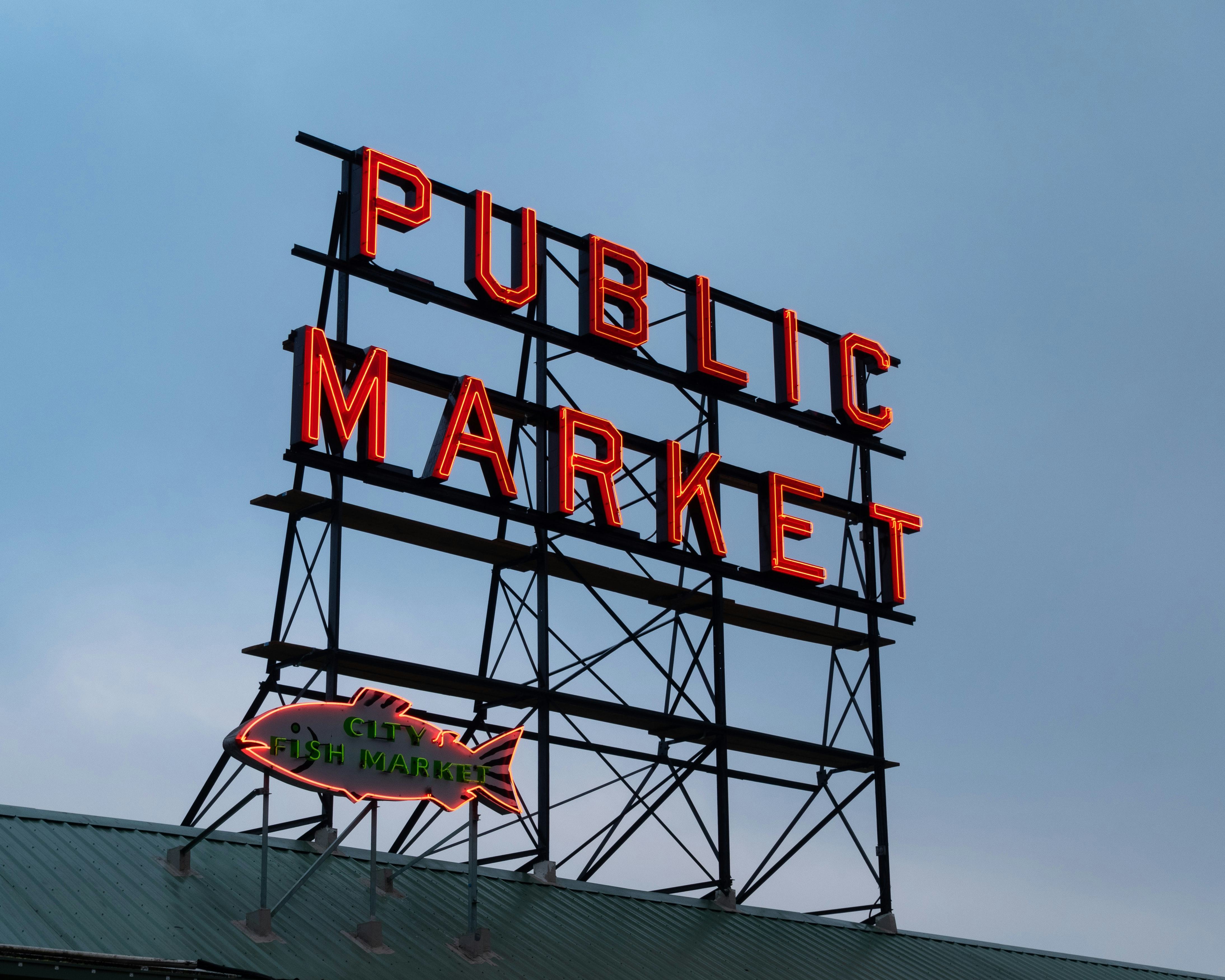I used to think that my hometown would always feel welcoming, that I would always be able to slide back into place. I plotted my return for many years. I imagined cool summers, damp winters, and the ease of knowing my way around a familiar but changing city. I marked the changes in my city over the last decade.
My frequent vacations in Seattle gave me windows to notice the architectural, demographic, and cultural shifts in the landscape. Train lines edging increasingly north, east, and south while traffic snarls on adjacent freeways. Proliferating slate gray townhomes and minimalist multi-use apartment buildings. People inhabiting the grassy triangles between freeway and frontage road. It seemed that as wealth kept accumulating in the city, so, too, did despair.
Since returning home, one place of refuge has been public transportation. I live a few miles away from the city limits at the northernmost edge of Lake Washington. I have a car, but after maddening traffic on the freeway, laps around blocks to find parking, and anxiety about my contribution to climate change, I opt mostly to ride the bus. While traveling by public transit takes two to three times as long, the bus and train provide distinct advantages. Rather than gluing my attention to the road and my hometown’s passive aggressive drivers, I can read a book, notice the woman wailing in the bus in front of me, or listen with full attention to an album. Through the wide windows, I can gaze out to the mountains, up at the new developments, and over the green crowning and cresting hills of Seattle. With each bus ride I felt closer to my city.
Transit also removes the feeling of being anchored to a car’s parking spot, itself a blighted barren expanse. One sunny summer afternoon, I met some friends for lunch near my middle school. We decided after lunch to walk towards Volunteer Park, where they would meet another friend. Had I driven, I would have worried about what to do with a car. Instead, I felt free to walk several blocks north through the city’s Central District, a historically Black but quickly gentrifying neighborhood, to Capitol Hill, a historically LGBTQ but also quickly gentrifying neighborhood. On these walks, I can better witness the changing landscape and people: Modern townhomes provide greater density for the mostly white tech workers who inhabit them. At now unrecognizable intersections with new apartment buildings, I realize that it is easy for me to forget what was once there.
Sometimes, taking the bus requires a walk from one stop to another. Early in my return, during these walks, I would try to catch the eyes of strangers on the street and say hello. Some responded in kind and others ignored me. Having lived in Detroit, where it was rude not to say hello to a passerby and, especially, to an elderly woman sitting on her porch, I felt out of place in my own city. In Detroit, I felt welcome despite how apparent it was that I wasn’t from there. In Seattle, it often seems that only your closest friends are welcome. What about me had changed in the years I spent away? Is the status quo of politeness but not kindness acceptable? Do people move here because it is normal to ignore others? Disappointment surges in me as I realize I may no longer fit in here.
Even the moments when I’m going nowhere and just waiting to transfer are times when I am afforded moments to understand my hometown again.
In Chinatown, at the corner of 4th Ave S and S Jackson St, pigeons peck at a shattered jar of creamy peanut butter as a group of unhoused people greet each other. In Roosevelt, kids turn road construction signs into makeshift ramps for their skateboards. At the University of Washington on the way from the bus stop to the subterranean platform, geese peck at yellowed grass while bikers ring and announce their passage as Mount Rainier looms in a smoky distance. Driving a car would erase these waypoints, these urban interstitial spaces where cities, their landscapes, and their people are understood in miniscule moments.
My family laments and my friends wince with pity when I share that I choose to take public transportation. I prefer the French word, transports en commun, to the English public transportation. The word commun, or common, implies a togetherness, a generality, and a sense of sharing. Public connotes something that is of the people. Both are true, but the former provides more solidarity. On the bus, at the stations, or even standing at the corner street transfer stop, are where a lot of life converges. I recognize in comparing the semantics of taking the bus that I am perhaps romanticizing something so banal, so often derided, and so underfunded.
But I think the bus is worthy of an elevation of status, as a place of coming together in a city I see now as an archipelago of social classes, race, and social cliques. Where cars shatter a sense of shared experience, on public transit there is no avoiding the loud music, the slight body odor, and a teenager’s eye rolls. No other place besides the train can bring together a tech professional on the way to a baseball game, an old Asian woman with a personal grocery cart, a prone man rocked to sleep by the train’s shudders, and a woman who uses the elevator windows as her only reliable mirror. Taking transit is an act of participation in city life of togetherness as income equality tears cohesion apart.
Riding the bus is not without discomfort and is a place to avoid for some. Two men getting in a fist fight in the middle of a busy street and the instigator then joining the queue to get on the bus. Another threatening a bus driver to let him off at an undesignated stop, then, as he descends, telling the driver that he is lucky nothing worse happened to him. An old man getting assaulted at a transfer center in a wealthy suburb, spooking my mom into avoiding transit at all costs. In many ways, transit exposes us to the realities of others, a necessity to understand my hometown as it truly is after my extended absence.
Seattle was a sanctuary for me, a place of familiarity. But it often feels that the space of belonging has shifted in the city. The bus and the train, places necessarily for everyone, have brought me closer to the city. Common transport is itself a refuge from traffic, from blistering heat, from not having a car. It also represents my process of coming back to my hometown and understanding what it is now as a participant in one of its most shared spaces.
There is peace in being together on a crowded train. It reminds me that despite the division, we’re all, even if briefly, headed in the same direction.
Winson Law is a nonprofit worker and baker striving to make himself useful to others. He writes when he can, mostly in a personal journal, to digest matters of life, identity, and meaning. Born and raised in Seattle, he currently lives in Detroit.
Discover more from Winson Law.









